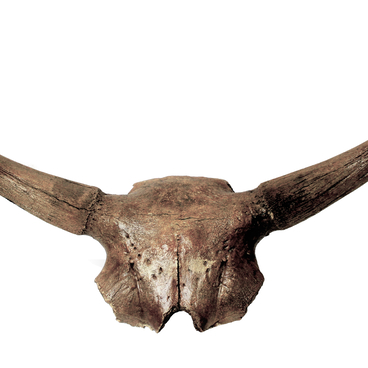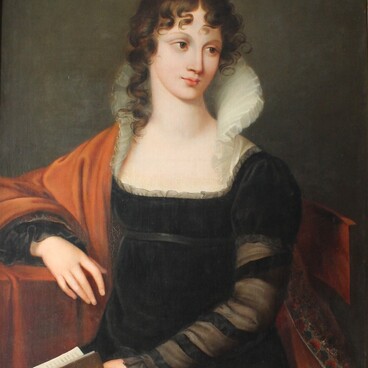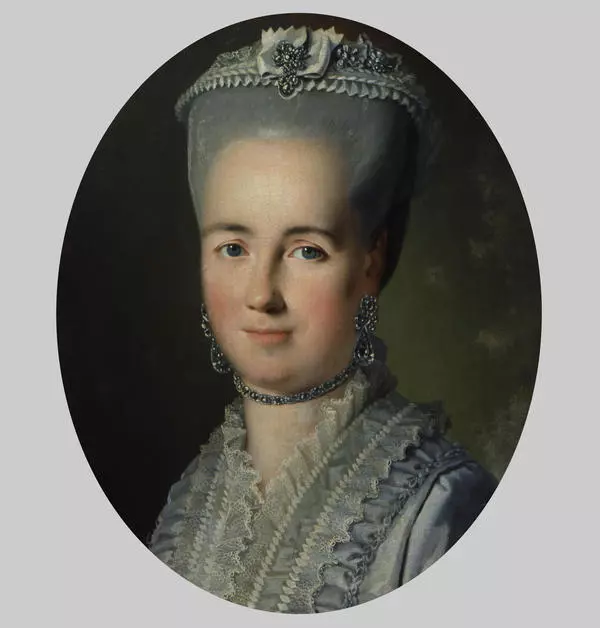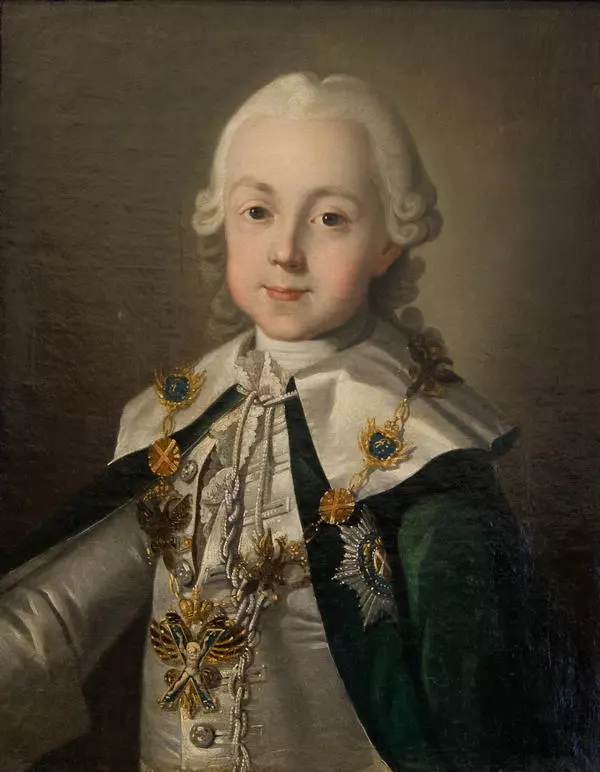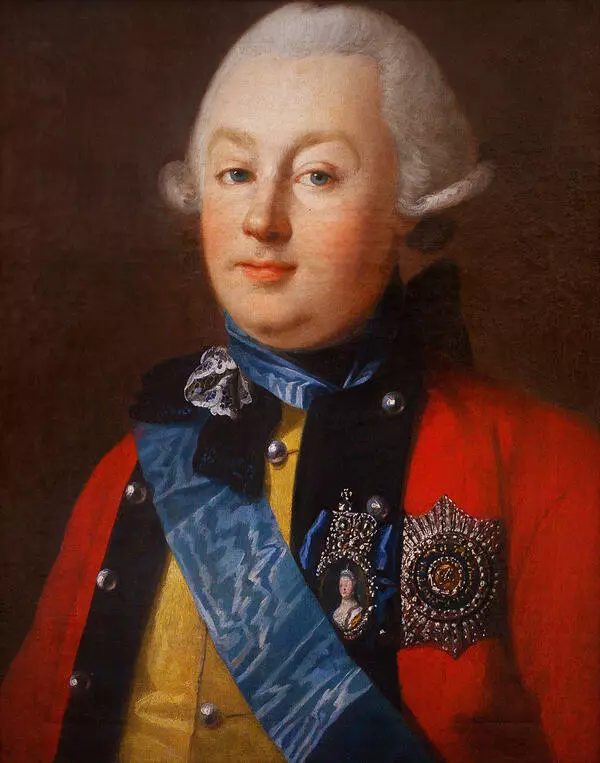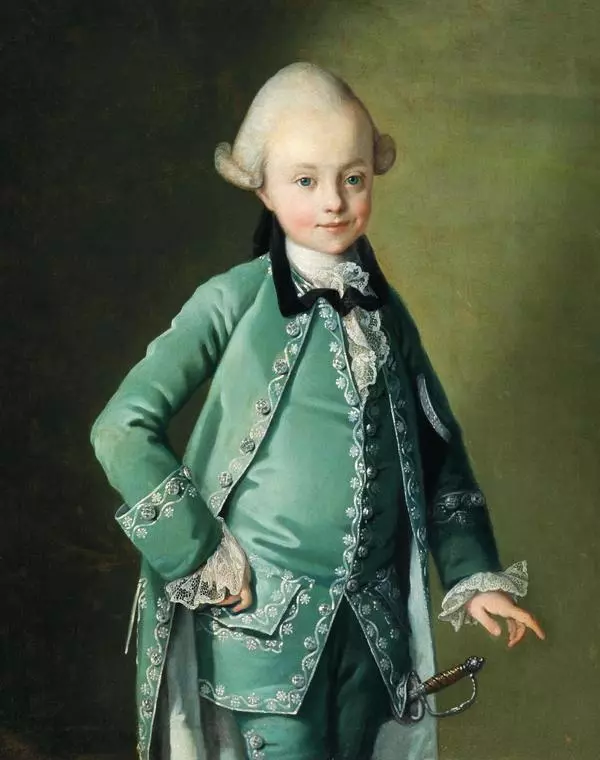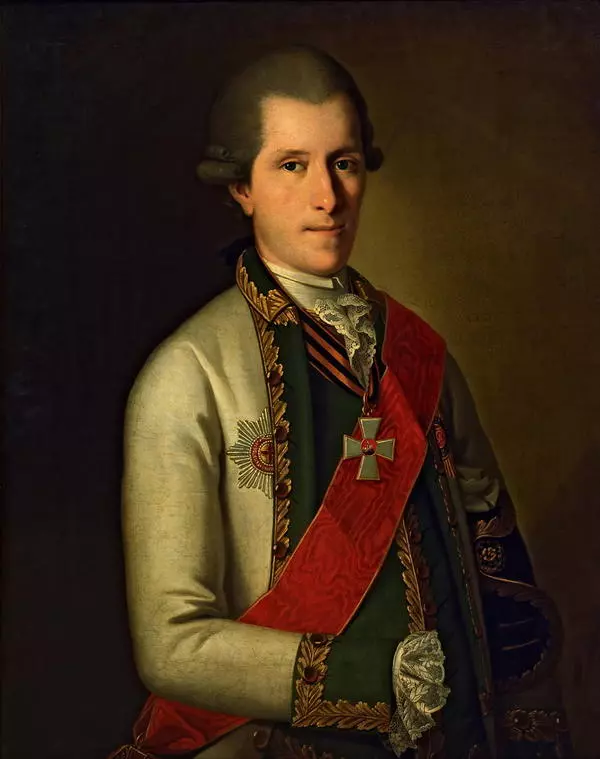Fyodor Orlov (1741–1796) was one of the famous Orlov brothers; his family’s affectionate nickname for him was Dunaika. He was extremely kind and fun to be around, “what set him apart was his tall stature, polite manners, and handsome white face.” During masquerades at the court of Elizaveta Petrovna when men dressed up in drag and women dressed up in men’s clothes, he was always one of the most beautiful drag queens. As a young man, he took part in several battles, always acting with great gallantry, a feature shared by all the Orlovs.
In 1762, he took an active part in the coup plot, along with his brothers. In an order dated August 20, 1763, Fyodor Orlov was instructed to ‘stay on the current affairs without a break’ in the governing senate and ‘conduct business at the attorney general’s desk.’ In 1764, he was appointed chief prosecutor and decorated with the Order of Saint Alexander Nevsky. In 1767, Orlov took part in the commission that developed the new set of regulations, representing the nobility of the Oryol Governorate. At Fyodor Orlov’s suggestion, the commission on estates was divided into three sections: the first dealt with the nobility, the second dealt with the middle class, or the ‘philistines, ’ and the third dealt with free peasants and serfs.
In 1770, during another war with Turkey, Fyodor Orlov left civil service and joined the Russian navy. Catherine the Great immortalized his exploits by having a column decorated with ship bows installed in Tsarskoye Selo. In addition, for numerous exploits, the count was promoted to lieutenant general, decorated with the 2nd-class Order of St. George, and presented with a diamond-studded sword.
In January 1772, Fyodor Orlov returned to Saint Petersburg. On the day the Treaty of Küçük Kaynarca was concluded, Fyodor Orlov was promoted to general-in-chief, at which point he resigned from military service. In 1775, he retired as full general. In retirement, Orlov devoted himself to his favorite pursuits: science and arts. In this period of his life, he liberally sponsored arts and took part in several research projects of the Academy of Sciences.
Fyodor Orlov was the only Orlov brother to never get married, but he had several illegitimate children with two women: five sons (Vladimir, Aleksey, Mikhail, Grigory, and Fyodor) and two daughters (Elizaveta and Anna). For their father’s service to the homeland, the empress allowed them all to keep their noble privileges and use their father’s last name. On his deathbed, Fyodor Orlov blessed his children, telling them to live in friendship, ‘the same way as I lived with my brothers and even Potemkin himself failed to drive a wedge between us.’
In 1762, he took an active part in the coup plot, along with his brothers. In an order dated August 20, 1763, Fyodor Orlov was instructed to ‘stay on the current affairs without a break’ in the governing senate and ‘conduct business at the attorney general’s desk.’ In 1764, he was appointed chief prosecutor and decorated with the Order of Saint Alexander Nevsky. In 1767, Orlov took part in the commission that developed the new set of regulations, representing the nobility of the Oryol Governorate. At Fyodor Orlov’s suggestion, the commission on estates was divided into three sections: the first dealt with the nobility, the second dealt with the middle class, or the ‘philistines, ’ and the third dealt with free peasants and serfs.
In 1770, during another war with Turkey, Fyodor Orlov left civil service and joined the Russian navy. Catherine the Great immortalized his exploits by having a column decorated with ship bows installed in Tsarskoye Selo. In addition, for numerous exploits, the count was promoted to lieutenant general, decorated with the 2nd-class Order of St. George, and presented with a diamond-studded sword.
In January 1772, Fyodor Orlov returned to Saint Petersburg. On the day the Treaty of Küçük Kaynarca was concluded, Fyodor Orlov was promoted to general-in-chief, at which point he resigned from military service. In 1775, he retired as full general. In retirement, Orlov devoted himself to his favorite pursuits: science and arts. In this period of his life, he liberally sponsored arts and took part in several research projects of the Academy of Sciences.
Fyodor Orlov was the only Orlov brother to never get married, but he had several illegitimate children with two women: five sons (Vladimir, Aleksey, Mikhail, Grigory, and Fyodor) and two daughters (Elizaveta and Anna). For their father’s service to the homeland, the empress allowed them all to keep their noble privileges and use their father’s last name. On his deathbed, Fyodor Orlov blessed his children, telling them to live in friendship, ‘the same way as I lived with my brothers and even Potemkin himself failed to drive a wedge between us.’
